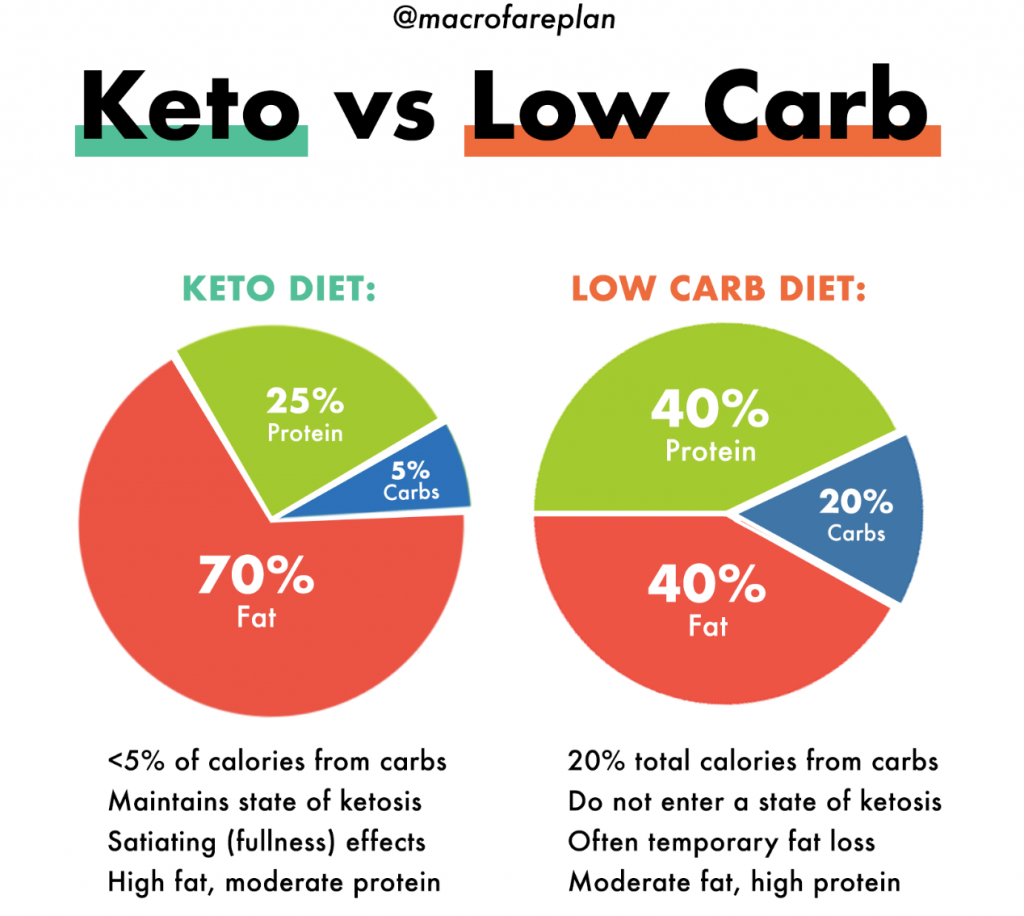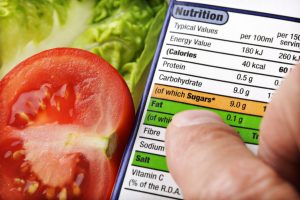Keto vs Low Carb
The ketogenic and the low carb diet are often compared and generalized as been very similar. However, there are some key differences you need to know about these two ways of eating. Knowing these differences can help you stick to a ketogenic diet without falling in the trap of the general term “low carb.”
Let’s take a look at what your macronutrients will look like when following a keto diet and what they will look like if you are eating low carb.
What’s the Difference Between the Keto Diet & Eating Low Carb?
To help break down the difference between these two ways of eating, it’s important to understand the goal of each of these diets. When you follow a keto diet, the goal is to get your body into a state of ketosis. You will be consuming about 5% of your calories from carbohydrates in order to help maintain that state of ketosis. In place of the carbohydrates, you will be consuming lots of healthy fats with moderate amounts of protein. The amount of fat you will be eating is a big differentiating factor between these diets. With the keto diet, you will consume as much healthy fat as your body needs to feel satisfied as fat is the primary component of this diet. The fat you consume will also be used as your primary fuel source. Your body will learn how to use fat for energy instead of carbohydrates.
With a low carb diet, the goal is not to get your body into a state of ketosis, but you will still be limiting the amount of carbohydrates you consume. With a low carb diet, you can consume up to 20% of your total calories from carbs which as you can see if quite a bit more than the 5% or less with a ketogenic diet. With a low carb diet, it is also important to know that the fat loss you experience is often temporary. You will also eat less fat than you would on a ketogenic diet and consume quite a bit more protein.
The Specific Macronutrient Breakdown
Now that we know a bit more about how these two diets differ from one another, it’s important to look at the actual macronutrient breakdown. This is especially important when you are following a ketogenic diet since your carbohydrate intake will be directly related to your body’s ability to get into a state of ketosis.
Let’s start by looking at where your calories would come from on a keto diet.
Ketogenic Diet Macronutrient Breakdown
- Carbs: 5%
- Protein: 25%
- Fat: 70%
Low Carb Diet Macronutrient Breakdown
- Carbs: 20%
- Protein: 40%
- Fat: 40%
The Benefits of Keto & Low Carb
While the keto diet and the low carb diet have their differences, they both have benefits depending on exactly what you are looking to achieve.
The keto diet is excellent for long-term weight loss, improving energy, decreasing inflammation, reducing food cravings, and for helping to stabilize blood sugar levels.
A low carb diet may be better for someone who isn’t quite ready to give up nearly all of their carbohydrates but still wants to lose some weight and support energy levels but with a little more flexibility in what foods you can eat.
If you are looking to reduce the amount of carbohydrates in your diet, the amount you decrease will greatly depend on how your body responds and what your ultimate goal is. For many people, they ketogenic diet is an excellent way to support overall health. Once you get past the initial hump and your body adjusts to the new way of eating, you will likely feel better than you ever have before. Not quite ready to jump right in? Starting with a low carb diet and then slowly transitioning into a ketogenic diet is another option to help your body get used to the carbohydrate restriction and help you stick to the diet long-term.




